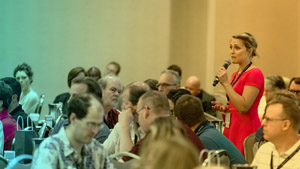Information Technology Services

Innovation in Pedagogy and Technology Symposium
Document Type
Article
Citation
Presented at Innovation in Pedagogy and Technology Symposium, University of Nebraska, May 8, 2018.
Abstract
First Name: Toni
Last Name: Hill
Department: Family Studies
Campus: UNK
Email: hilltl@unk.edu
Phone: 3088658232
Track: Pedagogy and Instructional Design
Title: Associate Professor
Session Type: Formal Presentation
Session Title: Five Generations: Preparing Multiple Generations of Learners for a Multi-generational
Workforce
Availability: Anytime
Presenters:
1. Olimpia Leite-Trambly, Instructional Design Specialist,
University of Nebraska at Kearney, eCampus, Communications Center, Room #213, Kearney NE 68849 308.865.8503 office, 308.865.8090 fax, leitetrambod@unk.edu
2. Sharon Obasi, Ph.D., Assistant Professor, Family Studies, Assistant Program Director, Early Childhood and Family Advocacy, University of Nebraska Kearney
West Center 153, Kearney 68849-2130, Office:(308) 865-8225, email: obasis2@unk.edu
3. Toni Hill, Ph.D., Associate Professor, Family Studies, Program Director, Early Childhood and Family Advocacy, University of Nebraska at Kearney, West Center, 149 W, Kearney, NE 68849-2130 Office: 308-865-8232 email: hilltl@unk.edu
Presentation Abstract:
For the first time ever, we have five generations working simultaneously in the workforce. This diversity provides unique opportunities and challenges for employers and managers. Oftentimes before this diverse workforce enters employment, universities and colleges were charged with preparing and educating them.
Unlike online teaching, traditional teaching with reading assignments and paper-pencil tests may lend itself better to educating a generationally diverse student group. Online teaching multiple generations is more challenging especially when attempting to encompass several generations of diverse learners. Instructors must
consider and include both the digital native and the digital novice or digital immigrant when designing instructional and assessment material. Instructors may have a student with a dozen or more devices and another student with only one “dumb” phone. Additionally, instructors need to consider issues of accessibility and
equity in designing instructional and assessment materials across multiple generations. Current research on the characteristics of the five generations of employees includes an examination of education values, communication style, and motivation across the generations. This presentation will demonstrate how instructors
can use the intergenerational workforce research to effectively design an intergenerational-inclusive online course.
Importance:
1. Attendees will review intergenerational workforce research as related to online learners.
2. Attendees will review research related to online learners, digital natives, and digital novices/immigrants.
3. Attendees will explore the development of an intergenerationally-inclusive online course.
Suggested Audience: Faculty
Presentation Needs:
n/a
Included in
Curriculum and Instruction Commons, Educational Methods Commons, Higher Education Commons, Instructional Media Design Commons, Online and Distance Education Commons


Comments
Copyright © 2018 by the authors.